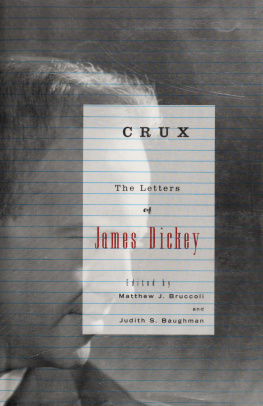Although my name appears as the author of this book, it was truly a collaborative effort. I owe an enormous debt to Clifford Kuhn, who showed remarkable patience and never gave up on me, even after I took a full-time job and moved away. Throughout my time at Georgia State University, Dr. Kuhn continued to offer encouragement, and his enthusiasm for this project helped sustain me. His insight into the history of Atlanta and the South and the role of public historians in telling the stories that comprise that history proved invaluable. Other members of the faculty at Georgia State who were especially supportive included Glenn Eskew, Michelle Brattain, Diane Willen, Denise Davidson, Don Reid, Tim Crimmins, and Richard Laub. Glenn Eskew and Alecia Long cheerfully agreed to serve as readers for this project, and their encouragement and input into the process were greatly appreciated. A special thank you goes to Larry Youngs of the Georgia State University faculty. I met Larry on my first day at Georgia State, and he served as an adviser and friend throughout my time there. I might have made it through the program without Larry, but the experience would not have been nearly as meaningful or as much fun.
I also would like to thank the denizens of the History Department Cube Farm who shared office space with me for four yearsAbou Bamba, Dexter Blackmon, Steve Blankenship, Shannon Bontrager, John Farris, Fakhri Haggani, Heather Lucas, Charmayne Patterson, Edie Riehm, Michael Stevens, Dana Wiggins, and Robert Woodrum. Our time together in the Cube Farm was a highlight of my tenure at Georgia State. Special thanks go to Andrew Reisinger, who shared with me his research on the Atlanta Historical Society. Dana, Edie, and Michael became part of my support group, lovingly known as FLOG ME, or For the Love of God, Make it End! Our flogging sessions provided an opportunity for us to share our work with a friendly audience that was not shy about making suggestions for improvement. I certainly learned a lot from them and had a grand time in the process.
I am indebted to many people who helped facilitate my research on this project. Andy Ambrose and Michael Rose at the Atlanta History Center made it possible for me to have access to the Margaret Mitchell House papers, and Diane Lewis, executive director of the Margaret Mitchell House, cheerfully answered all my questions. Don Rooney of the Atlanta History Center gave me access to his files and photographs and was always generous and forthcoming with answers to my many questions. Sheffield Hale offered helpful comments. Author Pearl Cleage willingly shared her notes with me following her talk at the Margaret Mitchell House and was always responsive when I had questions. Exhibit design consultants Barbara Charles and Jane Webb Smith provided great insight into the exhibit-development process that unfolded at the Margaret Mitchell House. Mary Rose Taylor was extraordinarily generous with her time. Her willingness to discuss candidly the events that transpired during the struggle to save the Margaret Mitchell House was remarkable. I cannot thank her enough for her frankness and cooperation.
My colleagues at Berry College were tremendously supportive, especially Rebecca Roberts, the former archivist, and Scott Breithaupt, who also offered great encouragement along the way.
Larry Malley of the University of Arkansas Press was a big believer in this project and offered great guidance along the way. His input and that of two outside readers certainly made this a better book. I would like to especially thank Darden Asbury Pyron, whose deep and personal knowledge of the subject matter allowed him to offer special insight into the stories that are woven together in this book.
At Kennesaw State University, I was blessed with delightful colleagues who have offered great encouragement to me over the past five years, especially Stephen Bartlett, Julia Brock, Richard Harker, Tom Keene, LeeAnn Lands, Bryan McGovern, David Parker, Alice Pate, Tom Scott, and Howard Shealey. The deans office in the College of Humanities and Social Sciences at Kennesaw State University supported this endeavor through the Manuscript Completion Program. My colleagues in the program, Jaime Cruz-Ortiz, Aaron Levy, Nicole Martin, and Debarati Sen, offered encouragement and support that enabled me to complete this project. Catherine Lewis has been the best colleague I could ever hope for, offering advice, support, and doughnuts as needed. Her relentless cheerfulness and friendship have made all the difference.
Many people have inspired me throughout the years that I have worked on this project, but few of them more so than L Thi Thanh, an acquaintance of mine in Vietnam. I first got to know Thanh through her own study of Gone with the Wind, a doctoral dissertation that she wrote while studying for her PhD at the University of Massachusetts Amherst. When I later traveled to Vietnam, I had the pleasure of meeting her in person. I spoke to her students about Margaret Mitchell and Gone with the Wind on several occasions, and she and I shared several meals. For Thanh, Gone with the Wind was more than a ripping-good yarn about the American Civil War and Reconstruction. The book had sustained her in her youth as her family struggled to survive during the Vietnam War. We were starving, too, just like Scarlett, she told me one evening, recalling that Scarlett had been her companion during those difficult years in the Mekong Delta.
I credit my sister, Angela Dickey, with making me aware of Gone with the Wind when we were children and inspiring an interest in Margaret Mitchells very complicated, popular, and polarizing work. She remains amazed that I managed to formulate a doctoral dissertation and book out of this childhood fascination, but she has encouraged me every step of the way. My dearest friend, Kathy Knapp, read this manuscript countless times and enthusiastically accompanied me on multiple visits to all the Gone with the Wind memory sites that are the subject of this book. Her kindness and patience know no bounds. My mother, Ouida Dickey, also suffered through countless readings of the manuscript. She was relentless in her editing as well as in prodding me along. She remains the person I most admire. It is to her that I dedicate this book.











